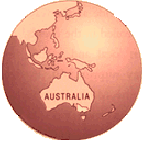|
-
LECHC serves
a population of 38,775
(ABS 1996 census, ABS projects that the population in
2001 will be 42,609.)
-
With an area
spanning Lakes Entrance - Bairnsdale and districts, and the Swifts Creek
- Omeo area.
-
LECHC services
are delivered to in excess of 10,280 individuals across most of East Gippsland.
|
Major features of that
population include:
-
Higher than state average
10-14 year olds and over 60 year olds.
-
Aged population in East
Gippsland represents 21.3%
(state average in 1996 was15.8%)
|
The growing
demand on the health system therefore can be seen to be predominantly in
the area of Aged Care. The major health related needs of the population
are reflected by both socio-demographic (income, education, age, ethnicity,
etc) and epidemiological (illness and injury) features.
Distinguishing socio-demographic
features include:
-
Youth unemployment at 26.5%
-
Early school leaving at
43.1% for boys and 24.6% for girls
-
Two thirds of the individual
income earning population earn less than $400 per week
-
Individuals receiving benefits
equal 26% of the income earning population
-
East Gippsland's population
includes 4 times the state percentage of Koori people
|
Distinguishing epidemiological
features include:
-
Higher than state and national
rates of cardio-vascular related deaths
-
Significantly higher rates
of death in males compared to state and national figures
-
30% higher than expected
rates of death due to cancer for people aged 15-64yrs, compared to other
non metropolitan areas
-
60% higher than expected
death rates from accident, poisoning and violence compared to other non
metropolitan areas
-
Nearly twice the rate of
suicides in males 15-24 years
-
The second highest rate
across the state of death from chronic respiratory diseases
-
Aboriginal and Torres Strait
Islander people continue to experience much poorer health than the general
population with higher death rates for almost every specific cause of death.
|
LECHC, in
conjunction with other agencies forming the East Gippsland Primary Care
Partnership, has recognised the following priority population groups for
Health Promotion for the next five years:
-
Aged Population
-
Youth
-
Koori Men 3O-5O years
|

|
